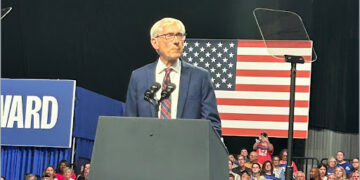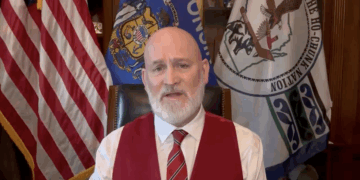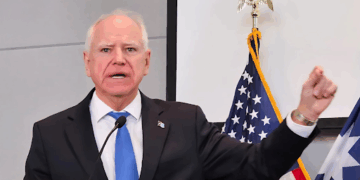Election integrity remains a defining issue in Wisconsin politics, as lawmakers continue to navigate voter concerns about transparency, accountability, and oversight. Confusing language on ballot referendums has fueled public frustration, while Republican legislators face mounting pressure to reform election laws and reassert legislative control over the Wisconsin Elections Commission (WEC).
In response, Assembly Republicans are advancing three bills aimed at clarifying referendum questions, tightening rules for petition circulators, and expanding voters’ ability to challenge WEC decisions — all part of a broader effort to restore trust in how elections are administered across the state.
Assembly Bill 207: Referendum Transparency
Assembly Bill 207 would overhaul how statewide referendum questions are explained to voters. Under current law, the Attorney General drafts legal summaries explaining the meaning of a “yes” or “no” vote. Lawmakers supporting AB 207 argue those summaries are often too complex or politically biased.
The proposed bill replaces that process with a “state referendum disclosure notice” issued by the Legislature. Each notice must include:
- The referendum date and full ballot text
- A plain-language summary of current law
- A clear explanation of the proposal’s effect
- A description of what a “yes” or “no” vote means
These summaries must appear in at least 12-point font and be posted at polling places, included with absentee ballots, and displayed on the state’s official election website. (RELATED: Wisconsin GOP Reps Aim to Curb School Boards’ Tax Authority)
“Voters deserve a clear, nonpartisan explanation of what they’re voting on,” said Rep. Maxey. “This bill puts that responsibility where it belongs — with the Legislature.”
Assembly Bill 223: Petition Circulator Residency
Assembly Bill 223 restricts who may circulate nomination or recall petitions. While current law allows any U.S. citizen who would be eligible to vote in Wisconsin to circulate petitions, AB 223 would require circulators to be actual Wisconsin residents who have lived in a district for at least 28 days.
The only exemption applies to presidential and vice-presidential campaigns. Supporters say the change ensures accountability in local campaigns. (RELATED: Evers Raises Juneteenth Flag as Republicans Renew Push to Ban Identity-Based Flags)
Assembly Bill 268: Expanding WEC Appeal Rights
Assembly Bill 268 modifies who can appeal a decision by the Wisconsin Elections Commission (WEC). At present, only individuals who can prove they were personally harmed by a WEC ruling have standing in court.
AB 268 removes that requirement, allowing any complainant to appeal adverse decisions. The bill is a response to recent warnings from the U.S. Department of Justice, which indicated current WEC procedures may violate federal law.
More election-related legislation is expected in upcoming sessions as lawmakers aim to strengthen oversight and increase transparency. Among the various proposals, the push to clarify referendum questions has drawn the most public attention. Both Republicans and Democrats agree that voters are often left confused by legal jargon and unclear ballot language—but they remain sharply divided on how to address the issue.
Republicans are backing a “disclosure notice” system that would provide plain-language explanations alongside the official ballot text. Democrats, on the other hand, want to rewrite the questions themselves, incorporating simplified language and relevant legal context. With constitutional amendments increasingly used to bypass the governor’s veto, how these questions are worded and presented could have a significant impact on future policy battles—and on voters’ trust in the integrity of the process.

































